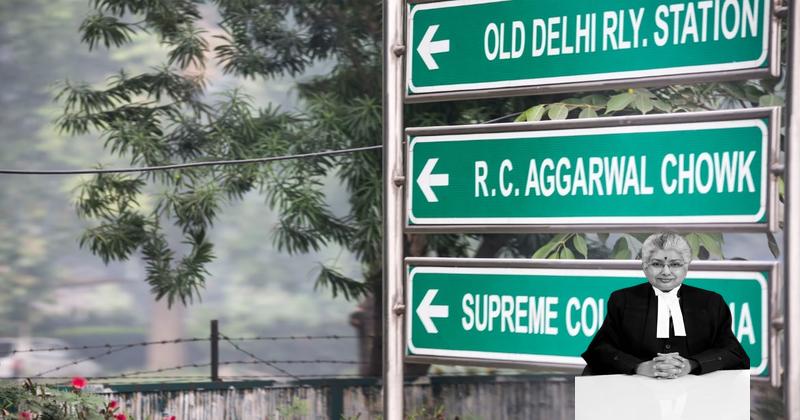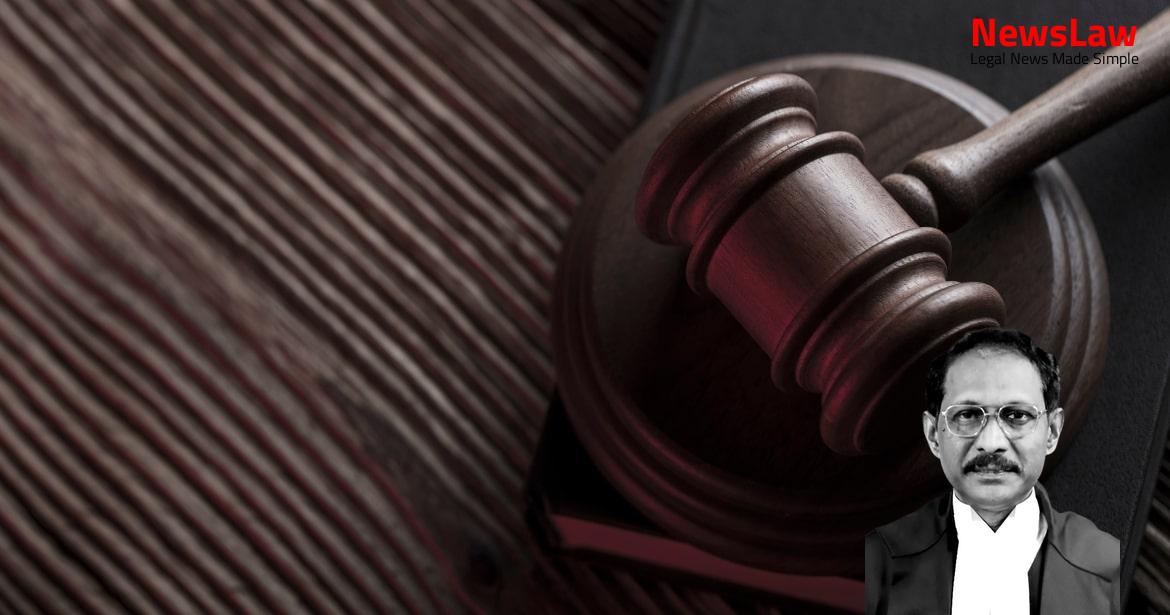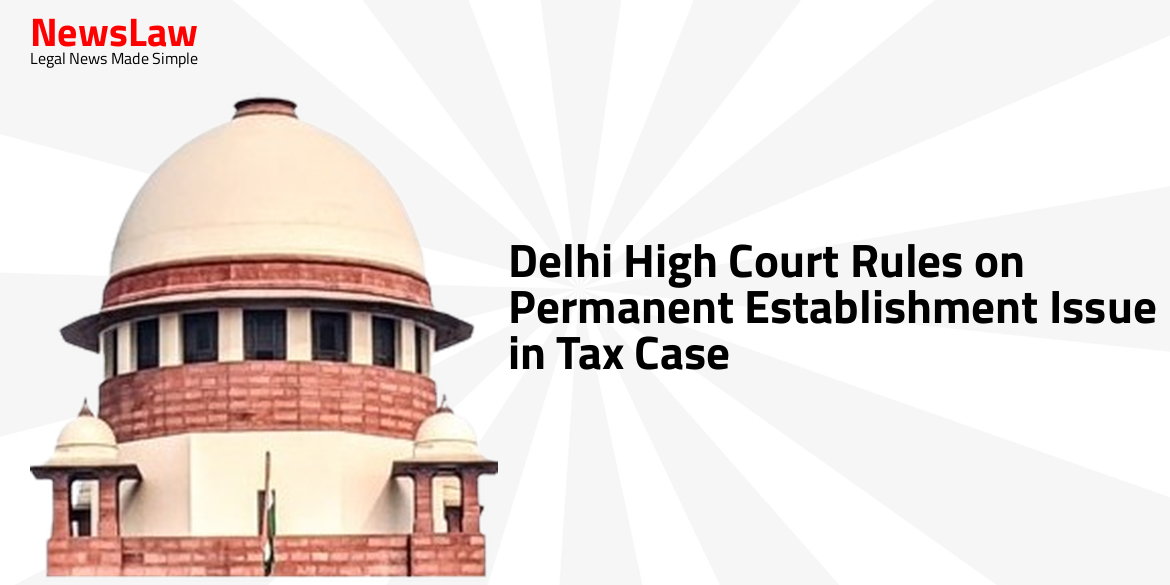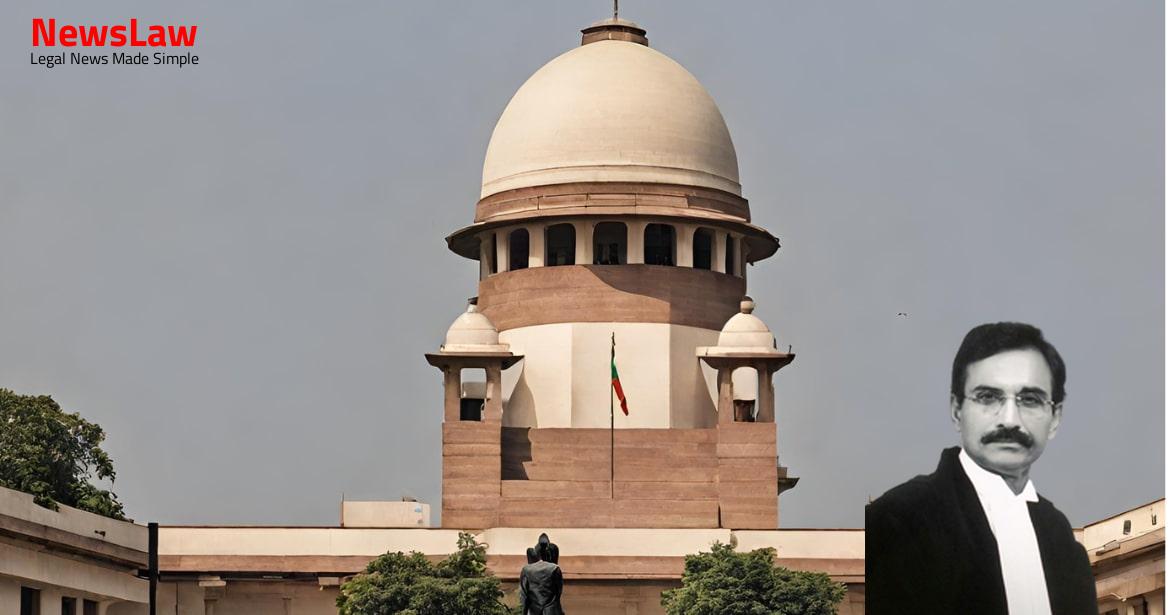By the impugned judgment, the Division Bench of the High Court dismissed the Writ Appeal filed by the Appellant-University and confirmed the judgment of the learned Single Judge of the High Court, dated 13 October, 2015 whereby the appellant-University was directed to grant two advance increments to Respondent No 1 in terms of Clause 6.18 of the revised University Grants Commission (“UGC”) Scheme, 2 1998 and Government Order dated 21 December, 1999, on his placement as a Selection Grade Lecturer. (C)
No 28567 of 2012 before the High Court of Kerala challenging the orders of the Appellant-University dated 20 October, 2011 and 12 January, 2012, on the ground that two advance increments, payable to him on placement as a Selection Grade Lecturer were erroneously withheld. iii) To issue a writ of mandamus commanding the Appellant- University to disburse the salary and arrears payable to Respondent No 1 from 22 December, 1999, i.e., the date on which he was placed in the selection grade to 14 July, 2000. degree, would not be eligible for advance increments at the time of their placement in the selection grade. degree, he would not be eligible to claim two more advance increments based on his Ph.D. ii) That the subsequent Government Order dated 29 March, 2001 had modified the Government Order dated 21 December, 1999 to the extent of stating that teachers who had already got the benefit of advance increments for having a Ph.D. By the impugned judgment dated 10 August, 2016, the Division Bench of the High Court of Kerala dismissed the said writ appeal filed by the Appellant-University and confirmed the judgment of the learned Single Judge of the High Court, dated 13 October, 2015 whereby the Appellant-University was directed to grant two advance increments to Respondent No.1 in terms of Clause 6.18 of the Government Order dated 21 December, 1999. ii)
Reliance was placed on the decision of a co-ordinate Bench of the High Court in Writ Appeal (C) No.749 of 2013 wherein the contention of the Government that a Lecturer who was already granted advance increments at the time of her recruitment, would not be eligible for further increments on moving to the selection grade in light of the order dated 29 March, 2001, was repelled. iii) That the Government Order dated 29 March, 2001 could not be made applicable to Respondent No.1 who had been placed in the selection grade notionally from 22 December, 1999 with actual benefits accruing from 14 July, 2000. Surendranath for the Appellant-University and Sri Raghenth Basant, learned counsel for Respondent No 1 and perused the material on record. degree at the time of recruitment as a Lecturer and had therefore been granted four advance increments, would not be eligible for advance increments on the basis of the Ph.D. qualification, would not be eligible for advance increments at the time of their placement in the selection grade.
Therefore, it is to be read as a part and parcel of the Government Order dated 21 December, 1999 and must not be construed as a separate order which seeks to modify or alter the rights conferred by way of the order dated 21 December, 1999.
It was next contended that since it was specifically stated in the order dated 29 March, 2001 that the same was a clarificatory order, it was needless to specify expressly that the said order would operate retrospectively. In this context, it was contended that a perusal of the order dated 29 March, 2001 would make it abundantly clear that it was meant to clear ambiguity in the application of Clauses 6.16 to 6.19 of the order dated 21 December, 1999 and not to withdraw any substantive rights. degree at the time of recruitment as a Lecturer would be eligible for six advance increments, i.e., four advance increments at the time of recruitment and two additional increments at the time of being placed in the selection 12 grade. degree at the time of his recruitment, but subsequently obtains one while serving as a Lecturer before placement in the selection grade, would be eligible for four advance increments, i.e., two advance increments on obtaining a Ph.D. Hence, Clauses 6.16, 6.18 and 6.19 could not be construed to imply that a Lecturer who had already got the benefit of four advance increments at the time of recruitment, would not be eligible for two more advance increments on being placed in the selection grade. That the Government Order dated 29 March, 2001 did not indicate that the same was to operate retrospectively and hence, cannot be stated to have retrospective effect. Having heard learned Senior Counsel and learned counsel for the respective parties and on perusal of the material on record, we find that the following points would arise for our consideration: i) Whether the High Court was right and justified in directing grant of two advance increments to Respondent No 1 in terms of Clause 6.18 of the Government Order dated 21 December, 1999, on his placement as a Selection Grade Lecturer?
This matter calls for a determination as to whether the 29 March, 2001 was a clarification of Clauses 6.16 to 6.19 of the Government Order dated 21 December, 1999, or whether, it amended or modified the same. dated 21 December, 1999 have been extracted hereinunder: “ Incentives for Ph.D./M.Phil.
Also Read: https://newslaw.in/supreme-court/w-p-crl-no-000491-2022/
Such a candidate, on being placed in the Selection Grade or as a Reader, would be eligible to two additional advance increments. degree at the time of recruitment as a 16 Lecturer and is later placed in the selection grade would be eligible for a total six advance increments. degree and is placed in the selection grade would be eligible for a total five advance increments. Further, on being placed in the selection grade, such a Lecturer would be eligible for two additional advance increments. degree to his/her credit at the time of recruitment Four advance increments Not applicable Two advance increments Six advance increments A Lecturer, who possesses an M.Phil. Having discussed the import of the aforesaid Clauses of the Government Order dated 21 December, 1999, it is necessary to examine the extent to which it was modified by way of the subsequent Government Order dated 29 March, 2001 numbered as G.O. HIGHER EDUCATION (C) DEPARTMENT G.O.(P) No.44/2001/H.Edn. GE-10/E/Genl/518/3493 dated 24.10.2000 from the Accountant General, Thiruvananthapuram.
The ready reckoner furnished by the Accountant General, Thiruvananthapuram along with his letter read above, for calculating the arrears of pay from 1-1-96 to 31-1-97, reckoning the first interim relief alone, is approved by government and is appended to this Order. Teachers who have got the benefit of advance increments for having Ph.D will not be eligible for advance increments at the time of their placement in the selection grade. A teacher is not eligible for benefits specified both in paras 6.17 and 5.19 (should read as 6.19) simultaneously.
It is necessary to contrast the entitlements of different categories of lecturers on being placed in the selection grade, under the Government Order dated 21 December, 1999, vis–vis, the 21 subsequent Government Order dated 29 March, 2001. However, the number of advance increments that would accrue to such a Lecturer on being placed in the selection grade was reduced to four, vide Government Order dated 29 March, 2001. The Government Order dated 29 March, 2001 restricted the eligibility of to the advance increments which would accrue on being placed in the selection grade by providing that a teacher who had got 22 the benefit of advance increments by virtue of having a Ph.D. As noted above, the Government Order dated 29 March, 2001 modifies the Government Order dated 21 December, 1999 by providing that Lecturer would not be simultaneously eligible for the incentives under Clause 6.16 and 6.19 thereof.
Also Read: https://newslaw.in/?p=655
degree at the time of recruitment as a Lecturer, he or she would be entitled to two advance increments and if any Lecturer possesses a Ph.D. Paragraphs 4 and 6 of the said Order categorically state that the incentive specified in paragraphs 6.16 to 6.18 and paragraphs 6.18 and 6.19 of the earlier Government Order would not be simultaneously applicable. Therefore, in order to determine whether the Government Order dated 29 March, 2001 may be made applicable retrospectively, it is necessary to consider whether the said order was a clarification or a substantive amendment. […] An explanatory Act is generally passed to supply an obvious omission or to clear up doubts as to the meaning of the previous Act. Ltd., (1997) 226 ITR 625 (SC) noted that circumstances under which an amendment or modification was introduced and the consequences thereof would have to be borne in mind while deciding the issue as to whether the amendment was clarificatory or substantive in its nature and whether it would have retrospective effect or not. That since there was an obvious omission in the provision, an amendment was necessitated which would clarify/declare the law retrospectively. The Court will not regard itself as being bound by the said statement in the statute itself, but will proceed to analyse the nature of the amendment and then conclude whether it is in reality a clarificatory or declaratory provision or whether it is an amendment which is intended to change the law and which applies to future periods.” This position of the law has also been subscribed to in Union of India vs Martin Lottery Agencies Ltd., (2009) 12 SCC 209 wherein it was stated that when a new concept of tax is introduced so as to widen the net, the same cannot be said to be only clarificatory or declaratory and therefore be made retrospectively, even though such a tax was introduced by way of an explanation to an existing provision.
Case Title: SREE SANKARACHARYA UNIVERSITY OF SANSKRIT Vs. DR. MANU (2023 INSC 539)
Case Number: C.A. No.-003752-003752 / 2023



